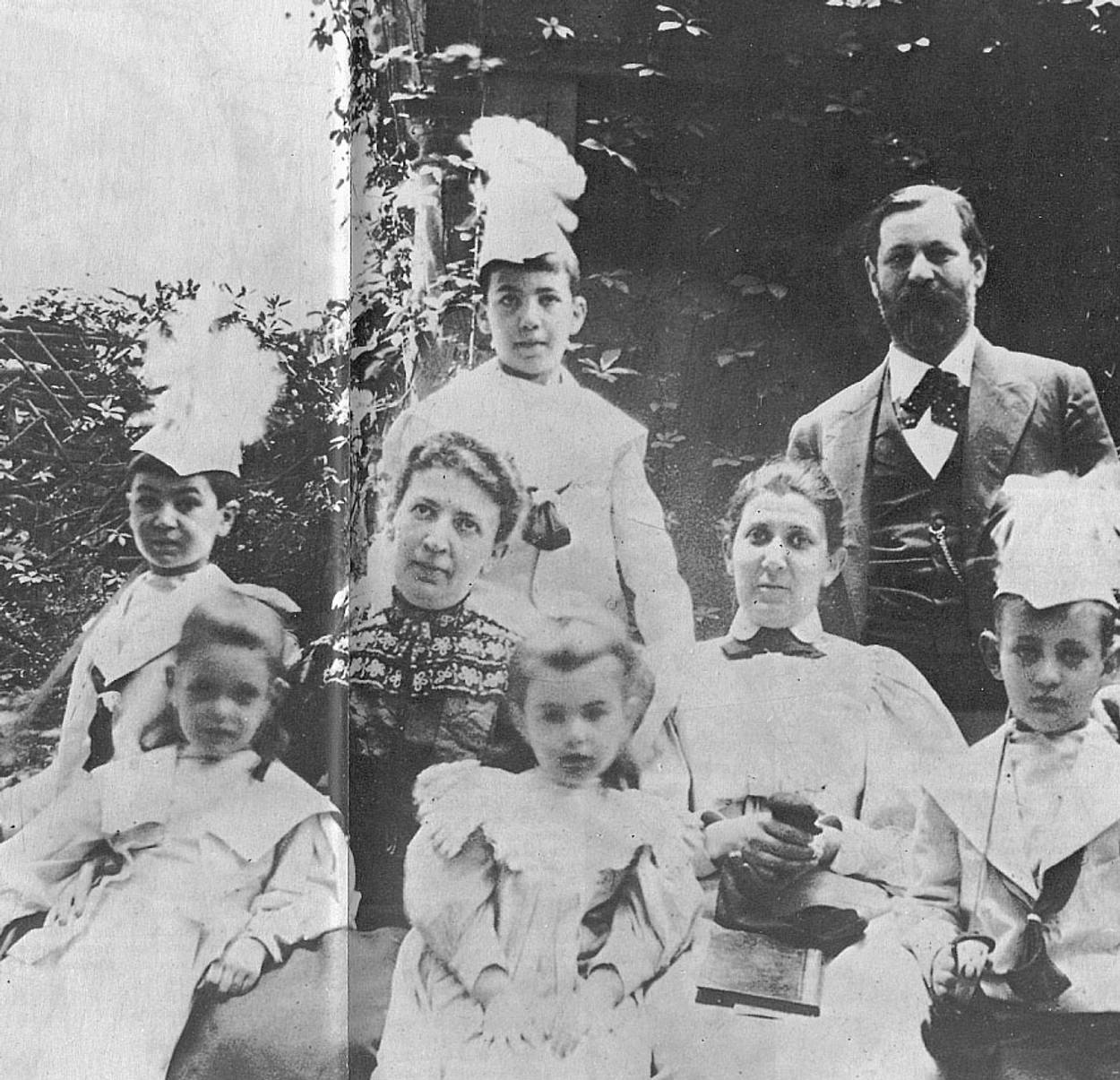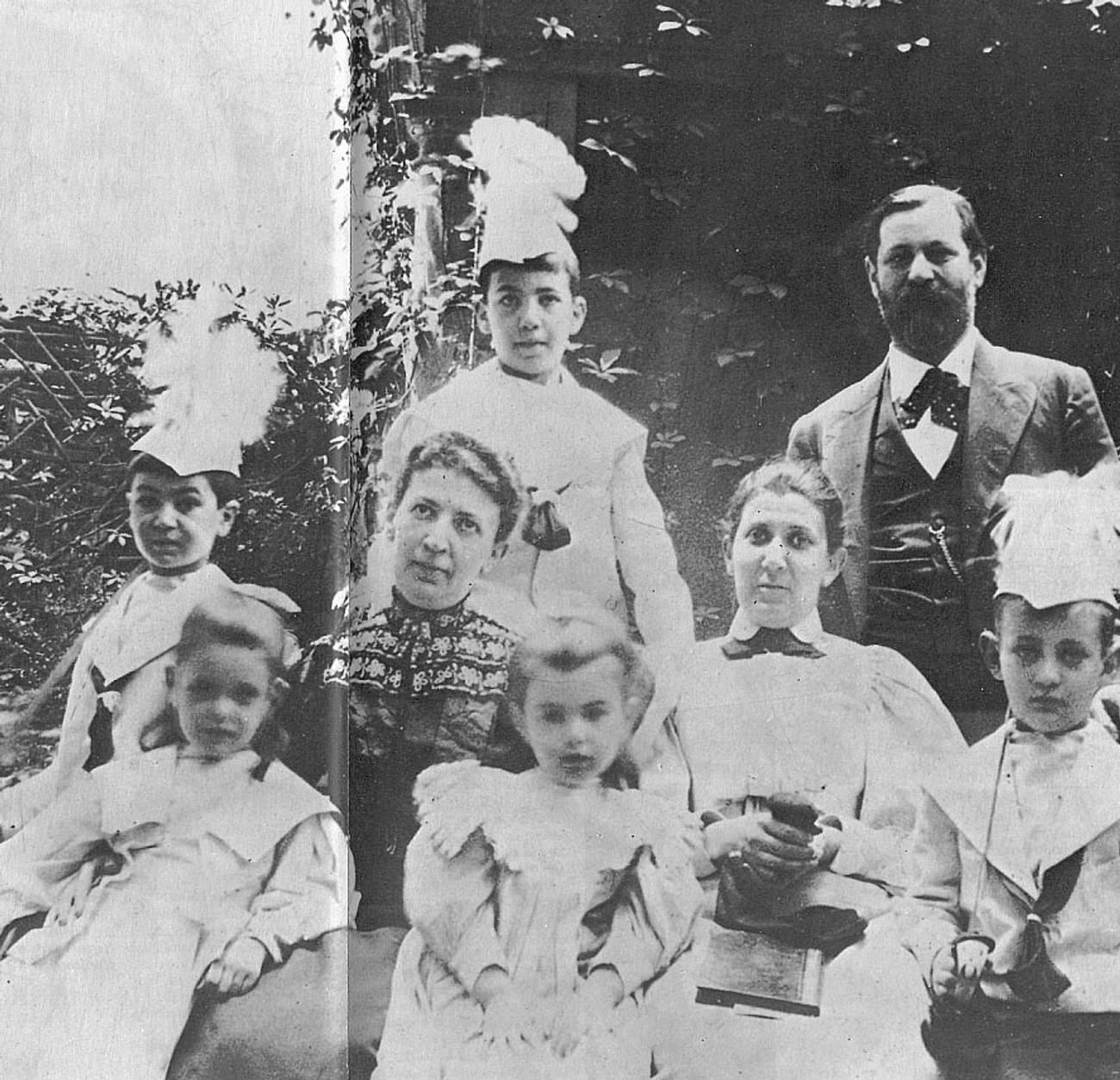Sophie, Max, and Freud
A writer’s journey to discover her father’s family leads her to the father of psychoanalysis




That thorniest of questions, what’s in a name, has occupied Jews long before those two star-crossed Veronese teenagers pondered it to no good end. Abram must first become Abraham before he births a nation; Jacob struggles with the angel and is dubbed Israel. Names, for Jews, aren’t identities; they are destinies.
Michèle Halberstadt readily agrees. It’s not her first name that had always made her uneasy, perfectly ancient and respectable and Gallic as it is. It’s her last name: She had never met anyone else who shared it, and when her father passed away, she felt she might be the last Halberstadt on earth.
“All of a sudden my sister and I were orphans,” she said, “and I realized, who is going to carry the name? Nobody. In some ways I carry it, but once I’m gone, the name will be gone.”
This made her relationship with the name even thornier. Halberstadt, she had always felt, “scratches the ear.” It was the sort of name that “only brings worries in everyday life. ‘Albert what?’ ‘How do you spell it?’ ‘So you’re not from here?’”
Her name and its discontents might’ve remained a private grievance, something Halberstadt—one of France’s most celebrated writers and film producers, responsible for works by Paolo Sorrentino, Atom Egoyan, and other modern masters—thought about only rarely, in between her many professional obligations. But a few days before he died, her father, his memory already fading, felt compelled to rescue the family from the mists of oblivion. He showed his daughter a picture of his mother, Feige, whom he believed Michèle resembled. It was an invitation to go out there and find the Halberstadts.
Michèle obeyed, however begrudgingly. Piecing together what little she knew about her father’s family, she traveled to Hamburg in search of more clues, all the while feeling silly. “I’m sitting in my hotel room,” she said, “typing notes, thinking why am I spending my money, I’m not going to do anything with it, I’m being so narcissistic.”
It was just the point in the mystery that calls for the arrival of a prime suspect who throws the plot into motion, and Halberstadt soon found hers, an Austrian Jewish neurologist who’d gone on to become world famous: Sigmund Freud.
The “father of psychoanalysis,” Halberstadt learned, had a daughter Sophie, who married a young photographer in Hamburg named Max Halberstadt, her father’s cousin. And it was Max who took that famous photo of Herr Doktor, cigar suggestively in hand, gazing at the camera with one part amusement and one part foreboding. When Freud showed up, Halberstadt knew she had a book.

The one she wrote, Née Quelque Part, or Born Somewhere, is sadly not yet available in English, though some publisher would be wise to amend that soonest. Released last year in France, it’s a rare work that contains multitudes: one part thrilling investigation into the origins of the name and the family, one part tender biography of people famous and tragically less so, one part brilliant meditation on belonging, that perennial anxiety that had always bedeviled Jews, a nation of perpetual outsiders.
And in the middle of it all there’s Freud, like you’ve never seen him before. When she realized the great eminence had just sauntered into the family history she was trying to write, Halberstadt was both delighted and deterred. Her mother had idolized Freud, and Michéle grew up reading Sigmund’s work and forming an opinion of him as being a man completely and unconditionally devoted to his work. The Freud she’ll soon meet, she thought, the Freud in the family pictures, would be a beast—brutal, imposing, and overbearing.
The letters she discovered in her sleuthing, between Max and his famous father-in-law, showed her a very different man.
“The heart Freud shows, the humor he shows, the fact that he’s never pretending not to be who he is, but not making anything about it,” Halberstadt said. “He is who he is, and he knows that who he is comes with power, knowledge, money, and possibilities he can give to those around him. But the way he gives advice to those he loves is just so heartfelt and sincere and absolutely touching. He’s just a regular dad and granddad who just happened to be Freud.”
Bolstered by this unexpectedly warm blast from the past, Halberstadt continued her detection. She went to South Africa, were Max ended up after Sophie died tragically of the flu in 1920. She traveled to the small Polish town where her father was born, grappling with its troubled past. She looked into pre-state Palestine, another stop on the family’s unending journey where her father and Max had both spent some time. The particulars of her investigation are best left unspoiled; they await any reader who cares to join Halberstadt on her journey. But when it was over and the book was written, she said, she felt a strange sort of peace she hadn’t known before.
“Finishing the book was like putting a stone on my father’s grave,” she said. “I went to his grave and said, look, I told your story, I think you’ll be proud. You earned your place in the family tree.”
Which, in the Halberstadt family, was far from obvious. Michèle’s father had survived the Holocaust, and very seldom spoke about who he was before the Shoah.
“He didn’t want to hurt me with the past,” she said. “He just wanted me to focus on the future. But there comes a time you need to know more.”
That feeling, she said, that vague itch, that slight but always present pinch of unease you get from never being sure where your story began, was at the heart of her preoccupation with her last name. Being a Halberstadt was an imposition in part because she had no idea who the Halberstadts were, who they’d been before Hitler’s goons had trampled their world. “My husband is Catholic,” she said, “he comes from a bourgeois French family, he had great-grandparents and houses, he knows the lines of his family. He had furniture inherited from generations. I moved in to our flat with three suitcases. That is what it is to be Jewish. You don’t carry weight. The weight is inside, not outside.”
Being a Halberstadt, we realize reading the book, meant carrying the weight—of family, of religion, of tradition, of history, of shared destiny—wherever you went. “They were all born here,” Michèle writes, “in Halberstadt, a town in East Germany that Jews once called home.” And then they fled, but fleeing did not drain them of their essence. They remained Halberstadts even out of Halberstadt because it was their souls, not the soil, that made them who they were.
This, Halberstadt argued, was why her book, steeped as it is in a sense of loss and survival, isn’t sad: It’s a timeless Jewish reminder that being history’s outsiders simply means that we’re at home wherever we go.
“I want the reader to feel that we belong,” Halberstadt said. “We always belong. Whatever way it is, we belong to the earth we live in, and it’s just a matter of finding how to belong to it.”
Liel Leibovitz is editor-at-large for Tablet Magazine and a host of its weekly culture podcast Unorthodox and daily Talmud podcast Take One. He is the editor of Zionism: The Tablet Guide.